afterLoad (456.41KB) (966μs)
afterInitialise (1.28MB) (27.32ms)
afterRoute (869.84KB) (12.17ms)
beforeRenderComponent com_tags (20.38KB) (379μs)
afterRenderComponent com_tags (1.85MB) (78.44ms)
afterDispatch (28.34KB) (2.98ms)
beforeRenderRawModule mod_articles_category (READ MORE...) (372.12KB) (11.18ms)
Before Access::preloadComponents (all components) (56.7KB) (1.33ms)
After Access::preloadComponents (all components) (103.05KB) (2.01ms)
Before Access::getAssetRules (id:8 name:com_content) (840B) (28μs)
After Access::getAssetRules (id:8 name:com_content) (7.05KB) (56μs)
afterRenderRawModule mod_articles_category (READ MORE...) (5.08KB) (94.79ms)
beforeRenderRawModule mod_tags_popular (Search) (4.81KB) (33μs)
afterRenderRawModule mod_tags_popular (Search) (1.8KB) (22.68ms)
beforeRenderRawModule mod_custom (Remember to download Heart Healthy Seniors) (816B) (34μs)
afterRenderRawModule mod_custom (Remember to download Heart Healthy Seniors) (4.86KB) (290μs)
beforeRenderRawModule mod_custom (Get additionel and more detailed knowledge ) (752B) (14μs)
afterRenderRawModule mod_custom (Get additionel and more detailed knowledge ) (1.67KB) (28μs)
beforeRenderRawModule mod_custom (BOOST YOUR IMMUNE DEFENSE) (608B) (10μs)
afterRenderRawModule mod_custom (BOOST YOUR IMMUNE DEFENSE) (928B) (24μs)
beforeRenderRawModule mod_custom (Are you taking supplements) (736B) (9μs)
afterRenderRawModule mod_custom (Are you taking supplements) (1.03KB) (18μs)
beforeRenderRawModule mod_custom (Antiaging) (720B) (9μs)
afterRenderRawModule mod_custom (Antiaging) (1.02KB) (20μs)
beforeRenderRawModule mod_custom (Exercise) (720B) (9μs)
afterRenderRawModule mod_custom (Exercise) (1.02KB) (18μs)
beforeRenderRawModule mod_custom (Check this before you buy a Q10 product) (752B) (8μs)
afterRenderRawModule mod_custom (Check this before you buy a Q10 product) (944B) (19μs)
beforeRenderRawModule mod_custom (Chronic fatigue tied Alan to his bed but Q10 capsules saved him:) (245.53KB) (2.43ms)
afterRenderRawModule mod_custom (Chronic fatigue tied Alan to his bed but Q10 capsules saved him:) (960B) (52μs)
beforeRenderModule mod_custom (Chronic fatigue tied Alan to his bed but Q10 capsules saved him:) (768B) (4μs)
afterRenderModule mod_custom (Chronic fatigue tied Alan to his bed but Q10 capsules saved him:) (1.3KB) (66μs)
beforeRenderRawModule mod_custom (Cholesterol-lowering without side effects:) (368B) (39μs)
afterRenderRawModule mod_custom (Cholesterol-lowering without side effects:) (2.19KB) (28μs)
beforeRenderModule mod_custom (Cholesterol-lowering without side effects:) (752B) (2μs)
afterRenderModule mod_custom (Cholesterol-lowering without side effects:) (1.28KB) (31μs)
beforeRenderModule mod_articles_category (READ MORE...) (21.32KB) (465μs)
afterRenderModule mod_articles_category (READ MORE...) (1.25KB) (43μs)
beforeRenderModule mod_tags_popular (Search) (5.17KB) (14μs)
afterRenderModule mod_tags_popular (Search) (1.27KB) (25μs)
beforeRenderModule mod_custom (Remember to download Heart Healthy Seniors) (1.17KB) (11μs)
afterRenderModule mod_custom (Remember to download Heart Healthy Seniors) (1.3KB) (22μs)
beforeRenderModule mod_custom (Get additionel and more detailed knowledge ) (368B) (9μs)
afterRenderModule mod_custom (Get additionel and more detailed knowledge ) (1.3KB) (21μs)
beforeRenderModule mod_custom (BOOST YOUR IMMUNE DEFENSE) (224B) (80μs)
afterRenderModule mod_custom (BOOST YOUR IMMUNE DEFENSE) (1.28KB) (25μs)
beforeRenderModule mod_custom (Are you taking supplements) (352B) (9μs)
afterRenderModule mod_custom (Are you taking supplements) (1.28KB) (20μs)
beforeRenderModule mod_custom (Antiaging) (336B) (9μs)
afterRenderModule mod_custom (Antiaging) (1.27KB) (20μs)
beforeRenderModule mod_custom (Exercise) (336B) (9μs)
afterRenderModule mod_custom (Exercise) (1.25KB) (20μs)
beforeRenderModule mod_custom (Check this before you buy a Q10 product) (352B) (8μs)
afterRenderModule mod_custom (Check this before you buy a Q10 product) (1.28KB) (20μs)
beforeRenderRawModule mod_menu (Main menu-US) (20.94KB) (583μs)
afterRenderRawModule mod_menu (Main menu-US) (158.16KB) (1.7ms)
beforeRenderModule mod_menu (Main menu-US) (720B) (6μs)
afterRenderModule mod_menu (Main menu-US) (4.36KB) (61μs)
beforeRenderRawModule mod_languages (Sprogskift) (3.44KB) (18μs)
afterRenderRawModule mod_languages (Sprogskift) (26.8KB) (2.08ms)
beforeRenderModule mod_languages (Sprogskift) (720B) (8μs)
afterRenderModule mod_languages (Sprogskift) (5.31KB) (24μs)
beforeRenderRawModule mod_finder () (6.34KB) (14μs)
afterRenderRawModule mod_finder () (214.16KB) (2.84ms)
beforeRenderModule mod_finder () (704B) (6μs)
afterRenderModule mod_finder () (5.79KB) (43μs)
beforeRenderRawModule mod_custom () (6.62KB) (160μs)
afterRenderRawModule mod_custom () (22.66KB) (1.19ms)
beforeRenderModule mod_custom () (704B) (8μs)
afterRenderModule mod_custom () (1.23KB) (79μs)
beforeRenderRawModule mod_menu (Main menu-US) (5.07KB) (136μs)
afterRenderRawModule mod_menu (Main menu-US) (5.8KB) (725μs)
beforeRenderModule mod_menu (Main menu-US) (720B) (4μs)
afterRenderModule mod_menu (Main menu-US) (1.25KB) (46μs)
beforeRenderRawModule mod_languages (Sprogskift Mobil) (912B) (18μs)
afterRenderRawModule mod_languages (Sprogskift Mobil) (3.89KB) (700μs)
beforeRenderModule mod_languages (Sprogskift Mobil) (720B) (4μs)
afterRenderModule mod_languages (Sprogskift Mobil) (1.27KB) (31μs)
beforeRenderRawModule mod_finder () (2.3KB) (9μs)
afterRenderRawModule mod_finder () (6.29KB) (833μs)
beforeRenderModule mod_finder () (704B) (6μs)
afterRenderModule mod_finder () (1.23KB) (54μs)
beforeRenderRawModule mod_custom () (8.66KB) (200μs)
afterRenderRawModule mod_custom () (904B) (171μs)
beforeRenderModule mod_custom () (704B) (3μs)
afterRenderModule mod_custom () (2.43KB) (39μs)
beforeRenderRawModule mod_custom () (688B) (96μs)
afterRenderRawModule mod_custom () (896B) (100μs)
beforeRenderModule mod_custom () (704B) (3μs)
afterRenderModule mod_custom () (2.71KB) (22μs)
afterRender (326.87KB) (5.95ms)
| 1 x afterRenderRawModule mod_articles_category (READ MORE...) (5.08KB) (34.2%) | 94.79ms |
| 1 x afterRenderComponent com_tags (1.85MB) (28.31%) | 78.44ms |
| 1 x afterInitialise (1.28MB) (9.86%) | 27.32ms |
| 1 x afterRenderRawModule mod_tags_popular (Search) (1.8KB) (8.18%) | 22.68ms |
| 1 x afterRoute (869.84KB) (4.39%) | 12.17ms |
| 1 x beforeRenderRawModule mod_articles_category (READ MORE...) (372.12KB) (4.03%) | 11.18ms |
| 1 x afterRender (326.87KB) (2.15%) | 5.95ms |
| 1 x afterDispatch (28.34KB) (1.07%) | 2.98ms |
| 1 x afterRenderRawModule mod_finder () (214.16KB) (1.02%) | 2.84ms |
| 1 x beforeRenderRawModule mod_custom (Chronic fatigue tied Alan to his bed but Q10 capsules saved him:) (245.53KB) (0.88%) | 2.43ms |
| 1 x afterRenderRawModule mod_languages (Sprogskift) (26.8KB) (0.75%) | 2.08ms |
| 1 x After Access::preloadComponents (all components) (103.05KB) (0.73%) | 2.01ms |
| 1 x afterRenderRawModule mod_menu (Main menu-US) (158.16KB) (0.61%) | 1.70ms |
| 1 x Before Access::preloadComponents (all components) (56.7KB) (0.48%) | 1.33ms |
| 1 x afterRenderRawModule mod_custom () (22.66KB) (0.43%) | 1.19ms |
| 1 x afterLoad (456.41KB) (0.35%) | 966μs |
| 1 x afterRenderRawModule mod_finder () (6.29KB) (0.3%) | 833μs |
| 1 x afterRenderRawModule mod_menu (Main menu-US) (5.8KB) (0.26%) | 725μs |
| 1 x afterRenderRawModule mod_languages (Sprogskift Mobil) (3.89KB) (0.25%) | 700μs |
| 1 x beforeRenderRawModule mod_menu (Main menu-US) (20.94KB) (0.21%) | 583μs |
| 1 x beforeRenderModule mod_articles_category (READ MORE...) (21.32KB) (0.17%) | 465μs |
| 1 x beforeRenderComponent com_tags (20.38KB) (0.14%) | 379μs |
| 1 x afterRenderRawModule mod_custom (Remember to download Heart Healthy Seniors) (4.86KB) (0.1%) | 290μs |
| 1 x beforeRenderRawModule mod_custom () (8.66KB) (0.07%) | 200μs |
| 1 x afterRenderRawModule mod_custom () (904B) (0.06%) | 171μs |
| 1 x beforeRenderRawModule mod_custom () (6.62KB) (0.06%) | 160μs |
| 1 x beforeRenderRawModule mod_menu (Main menu-US) (5.07KB) (0.05%) | 136μs |
| 1 x afterRenderRawModule mod_custom () (896B) (0.04%) | 100μs |
| 1 x beforeRenderRawModule mod_custom () (688B) (0.03%) | 96μs |
| 1 x beforeRenderModule mod_custom (BOOST YOUR IMMUNE DEFENSE) (224B) (0.03%) | 80μs |
| 1 x afterRenderModule mod_custom () (1.23KB) (0.03%) | 79μs |
| 1 x afterRenderModule mod_custom (Chronic fatigue tied Alan to his bed but Q10 capsules saved him:) (1.3KB) (0.02%) | 66μs |
| 1 x afterRenderModule mod_menu (Main menu-US) (4.36KB) (0.02%) | 61μs |
| 1 x After Access::getAssetRules (id:8 name:com_content) (7.05KB) (0.02%) | 56μs |
| 1 x afterRenderModule mod_finder () (1.23KB) (0.02%) | 54μs |
| 1 x afterRenderRawModule mod_custom (Chronic fatigue tied Alan to his bed but Q10 capsules saved him:) (960B) (0.02%) | 52μs |
| 1 x afterRenderModule mod_menu (Main menu-US) (1.25KB) (0.02%) | 46μs |
| 1 x afterRenderModule mod_finder () (5.79KB) (0.02%) | 43μs |
| 1 x afterRenderModule mod_articles_category (READ MORE...) (1.25KB) (0.02%) | 43μs |
| 1 x beforeRenderRawModule mod_custom (Cholesterol-lowering without side effects:) (368B) (0.01%) | 39μs |
| 1 x afterRenderModule mod_custom () (2.43KB) (0.01%) | 39μs |
| 1 x beforeRenderRawModule mod_custom (Remember to download Heart Healthy Seniors) (816B) (0.01%) | 34μs |
| 1 x beforeRenderRawModule mod_tags_popular (Search) (4.81KB) (0.01%) | 33μs |
| 1 x afterRenderModule mod_custom (Cholesterol-lowering without side effects:) (1.28KB) (0.01%) | 31μs |
| 1 x afterRenderModule mod_languages (Sprogskift Mobil) (1.27KB) (0.01%) | 31μs |
| 1 x Before Access::getAssetRules (id:8 name:com_content) (840B) (0.01%) | 28μs |
| 1 x afterRenderRawModule mod_custom (Get additionel and more detailed knowledge ) (1.67KB) (0.01%) | 28μs |
| 1 x afterRenderRawModule mod_custom (Cholesterol-lowering without side effects:) (2.19KB) (0.01%) | 28μs |
| 1 x afterRenderModule mod_tags_popular (Search) (1.27KB) (0.01%) | 25μs |
| 1 x afterRenderModule mod_custom (BOOST YOUR IMMUNE DEFENSE) (1.28KB) (0.01%) | 25μs |
| 1 x afterRenderRawModule mod_custom (BOOST YOUR IMMUNE DEFENSE) (928B) (0.01%) | 24μs |
| 1 x afterRenderModule mod_languages (Sprogskift) (5.31KB) (0.01%) | 24μs |
| 1 x afterRenderModule mod_custom (Remember to download Heart Healthy Seniors) (1.3KB) (0.01%) | 22μs |
| 1 x afterRenderModule mod_custom () (2.71KB) (0.01%) | 22μs |
| 1 x afterRenderModule mod_custom (Get additionel and more detailed knowledge ) (1.3KB) (0.01%) | 21μs |
| 1 x afterRenderModule mod_custom (Are you taking supplements) (1.28KB) (0.01%) | 20μs |
| 1 x afterRenderModule mod_custom (Antiaging) (1.27KB) (0.01%) | 20μs |
| 1 x afterRenderModule mod_custom (Exercise) (1.25KB) (0.01%) | 20μs |
| 1 x afterRenderModule mod_custom (Check this before you buy a Q10 product) (1.28KB) (0.01%) | 20μs |
| 1 x afterRenderRawModule mod_custom (Antiaging) (1.02KB) (0.01%) | 20μs |
| 1 x afterRenderRawModule mod_custom (Check this before you buy a Q10 product) (944B) (0.01%) | 19μs |
| 1 x afterRenderRawModule mod_custom (Are you taking supplements) (1.03KB) (0.01%) | 18μs |
| 1 x afterRenderRawModule mod_custom (Exercise) (1.02KB) (0.01%) | 18μs |
| 1 x beforeRenderRawModule mod_languages (Sprogskift) (3.44KB) (0.01%) | 18μs |
| 1 x beforeRenderRawModule mod_languages (Sprogskift Mobil) (912B) (0.01%) | 18μs |
| 3 x beforeRenderModule mod_custom () (704B) (0.01%) | 14μs |
| 1 x beforeRenderRawModule mod_custom (Get additionel and more detailed knowledge ) (752B) (0.01%) | 14μs |
| 1 x beforeRenderModule mod_tags_popular (Search) (5.17KB) (0.01%) | 14μs |
| 1 x beforeRenderRawModule mod_finder () (6.34KB) (0%) | 14μs |
| 2 x beforeRenderModule mod_finder () (704B) (0%) | 12μs |
| 1 x beforeRenderModule mod_custom (Remember to download Heart Healthy Seniors) (1.17KB) (0%) | 11μs |
| 1 x beforeRenderRawModule mod_custom (BOOST YOUR IMMUNE DEFENSE) (608B) (0%) | 10μs |
| 2 x beforeRenderModule mod_menu (Main menu-US) (720B) (0%) | 10μs |
| 1 x beforeRenderRawModule mod_custom (Antiaging) (720B) (0%) | 9μs |
| 1 x beforeRenderRawModule mod_custom (Exercise) (720B) (0%) | 9μs |
| 1 x beforeRenderModule mod_custom (Get additionel and more detailed knowledge ) (368B) (0%) | 9μs |
| 1 x beforeRenderModule mod_custom (Are you taking supplements) (352B) (0%) | 9μs |
| 1 x beforeRenderModule mod_custom (Antiaging) (336B) (0%) | 9μs |
| 1 x beforeRenderRawModule mod_custom (Are you taking supplements) (736B) (0%) | 9μs |
| 1 x beforeRenderModule mod_custom (Exercise) (336B) (0%) | 9μs |
| 1 x beforeRenderRawModule mod_finder () (2.3KB) (0%) | 9μs |
| 1 x beforeRenderModule mod_custom (Check this before you buy a Q10 product) (352B) (0%) | 8μs |
| 1 x beforeRenderModule mod_languages (Sprogskift) (720B) (0%) | 8μs |
| 1 x beforeRenderRawModule mod_custom (Check this before you buy a Q10 product) (752B) (0%) | 8μs |
| 1 x beforeRenderModule mod_custom (Chronic fatigue tied Alan to his bed but Q10 capsules saved him:) (768B) (0%) | 4μs |
| 1 x beforeRenderModule mod_languages (Sprogskift Mobil) (720B) (0%) | 4μs |
| 1 x beforeRenderModule mod_custom (Cholesterol-lowering without side effects:) (752B) (0%) | 2μs |
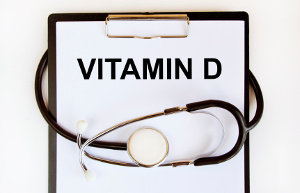 Danish scientists from Aalborg University have published a study of mice in which they demonstrate that vitamin D prevents cancer by affecting a particular kind of gut bacteria. A subsequent analysis of 1.5 million Danes shows a similar relation between low vitamin D levels in the blood and an increased risk of several cancer types. What is also worth mentioning is that the official vitamin D recommendations appear to be too low to be able optimize blood levels of the nutrient.
Danish scientists from Aalborg University have published a study of mice in which they demonstrate that vitamin D prevents cancer by affecting a particular kind of gut bacteria. A subsequent analysis of 1.5 million Danes shows a similar relation between low vitamin D levels in the blood and an increased risk of several cancer types. What is also worth mentioning is that the official vitamin D recommendations appear to be too low to be able optimize blood levels of the nutrient.







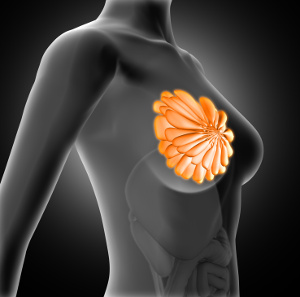
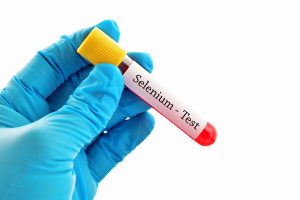 It is estimated that one billion people worldwide lack selenium. This has fatal consequences for public health because it increases the risk of virus infections, thyroid disorders, cardiovascular diseases, cancer, neurological disorders, and involuntary infertility. Adding to that problem is the fact that mercury, a known environmental toxin, throws a wrench into selenium’s different functions. In the following, we have compiled a long list of studies that look closer at the consequences of selenium deficiency and the advantage of optimizing the body’s selenium status with help from supplements.
It is estimated that one billion people worldwide lack selenium. This has fatal consequences for public health because it increases the risk of virus infections, thyroid disorders, cardiovascular diseases, cancer, neurological disorders, and involuntary infertility. Adding to that problem is the fact that mercury, a known environmental toxin, throws a wrench into selenium’s different functions. In the following, we have compiled a long list of studies that look closer at the consequences of selenium deficiency and the advantage of optimizing the body’s selenium status with help from supplements.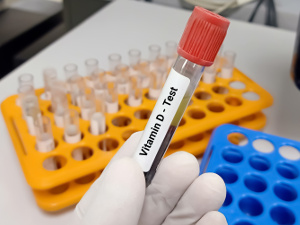 Blood levels of vitamin D serve as an early indicator of future health problems such as cardiovascular disease, osteoporosis, and cancer, according to a review article that was presented recently to the European Society of Endocrinology. Lack of vitamin D is rather common and a threat to public health, which is why the scientists suggest measuring levels of total vitamin D and free vitamin D in the blood. By optimizing levels of the nutrient in the blood it is possible to prevent a host of different lifestyle diseases as well as early death. It is not enough just to take any random vitamin D supplement. It must contain the right dose and have good absorption in order to be able to optimize vitamin D levels in the blood.
Blood levels of vitamin D serve as an early indicator of future health problems such as cardiovascular disease, osteoporosis, and cancer, according to a review article that was presented recently to the European Society of Endocrinology. Lack of vitamin D is rather common and a threat to public health, which is why the scientists suggest measuring levels of total vitamin D and free vitamin D in the blood. By optimizing levels of the nutrient in the blood it is possible to prevent a host of different lifestyle diseases as well as early death. It is not enough just to take any random vitamin D supplement. It must contain the right dose and have good absorption in order to be able to optimize vitamin D levels in the blood. Breast cancer is very common in the Western world and modern society. The disease is thought to be associated with lifestyle factors and lack of essential nutrients. For instance, it has been known for a long time that lack of vitamin D increases the risk of breast cancer. According to a new study that is published in the science journal Endocrinology, there is also a link between lack of vitamin D and the development of metastases in the lungs. Previous research also shows that the widespread deficiency of selenium, iodine, omega-3 fatty acids, and melatonin can increase the risk of breast cancer but supplements can help prevent the disease and possibly be used as add-on therapy.
Breast cancer is very common in the Western world and modern society. The disease is thought to be associated with lifestyle factors and lack of essential nutrients. For instance, it has been known for a long time that lack of vitamin D increases the risk of breast cancer. According to a new study that is published in the science journal Endocrinology, there is also a link between lack of vitamin D and the development of metastases in the lungs. Previous research also shows that the widespread deficiency of selenium, iodine, omega-3 fatty acids, and melatonin can increase the risk of breast cancer but supplements can help prevent the disease and possibly be used as add-on therapy.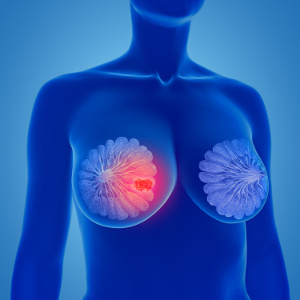 Breast cancer is the leading cancer form among women. Even though treatments have gotten a lot better the disease still has a high death toll. A Swedish-German study shows that having low levels of selenium in the blood worsens the prognosis, whereas having a higher selenium content in the blood can increase the odds of surviving breast cancer. Unfortunately, selenium deficiency is rather common in Europe. According to the scientists behind the new study, measurements of selenium status can be used to optimize blood levels of the nutrient, thereby improving treatment correspondingly.
Breast cancer is the leading cancer form among women. Even though treatments have gotten a lot better the disease still has a high death toll. A Swedish-German study shows that having low levels of selenium in the blood worsens the prognosis, whereas having a higher selenium content in the blood can increase the odds of surviving breast cancer. Unfortunately, selenium deficiency is rather common in Europe. According to the scientists behind the new study, measurements of selenium status can be used to optimize blood levels of the nutrient, thereby improving treatment correspondingly.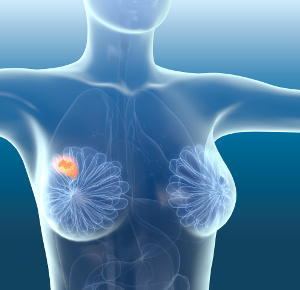 Having higher blood levels of selenium, an essential trace element, increases a breast cancer patient’s chances of 10-year survival, according to a Polish population study that is published in the science journal Nutrients. Also, earlier research has shown that supplementation with selenium yeast can lower the risk of contracting a variety of different cancer forms. The agricultural soil in Europe is very low in selenium and that is one of the reasons why selenium deficiencies are so common. The question is how much selenium we need to optimize levels in the blood.
Having higher blood levels of selenium, an essential trace element, increases a breast cancer patient’s chances of 10-year survival, according to a Polish population study that is published in the science journal Nutrients. Also, earlier research has shown that supplementation with selenium yeast can lower the risk of contracting a variety of different cancer forms. The agricultural soil in Europe is very low in selenium and that is one of the reasons why selenium deficiencies are so common. The question is how much selenium we need to optimize levels in the blood.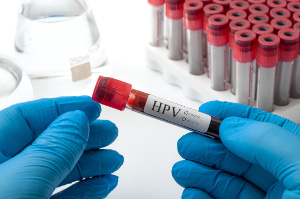 The majority of sexually active people contract HPV (human papilloma virus), of which there are several types. Normally, the infection goes away by itself but in some cases it becomes chronic. This increases the risk of serious cell changes in the cervix which, in worst case, can result in cervical cancer. An American study has found that having adequate levels of five different antioxidants – albumin plus vitamins A, B2, E, and folic acid – may lower papilloma virus infections that are linked to cervical cancer.
The majority of sexually active people contract HPV (human papilloma virus), of which there are several types. Normally, the infection goes away by itself but in some cases it becomes chronic. This increases the risk of serious cell changes in the cervix which, in worst case, can result in cervical cancer. An American study has found that having adequate levels of five different antioxidants – albumin plus vitamins A, B2, E, and folic acid – may lower papilloma virus infections that are linked to cervical cancer.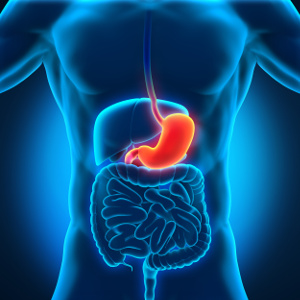
 Selenium supports a host of different metabolic processes and serves as an antioxidant that protects our cells. According to recent studies, selenium also has anti-ageing properties that protect us against cardiovascular disease, cancer, dementia, and other age-related diseases. According to a review article published in Medical News Today, selenium also helps against impaired immunity and counteracts chronic inflammation, which is typically seen in connection with ageing processes. A Swedish study of healthy seniors has even showed that supplementation with selenium and Q10 has a positive effect on heart function, quality of life, and life expectancy.
Selenium supports a host of different metabolic processes and serves as an antioxidant that protects our cells. According to recent studies, selenium also has anti-ageing properties that protect us against cardiovascular disease, cancer, dementia, and other age-related diseases. According to a review article published in Medical News Today, selenium also helps against impaired immunity and counteracts chronic inflammation, which is typically seen in connection with ageing processes. A Swedish study of healthy seniors has even showed that supplementation with selenium and Q10 has a positive effect on heart function, quality of life, and life expectancy.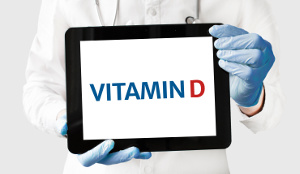 It is both healthy and life-extending to get plenty of summer sun, which is our main source of vitamin D. Just make sure not to get a sunburn. According to a large population study from University of South Australia, too little vitamin D in the blood is linked to early death, especially because of an increased risk of cardiovascular disease, cancer, and respiratory diseases. This is very relevant because, apart from the lack of sunshine during winter, things like sun awareness campaigns, indoor living, being overweight, and having dark skin can contribute to the widespread lack of vitamin D. The official recommendations for vitamin D intake are also comparatively conservative. Therefore, people should strive to optimize their levels of the nutrient, as vitamin D is involved in regulating countless gene activities and other functions in the body.
It is both healthy and life-extending to get plenty of summer sun, which is our main source of vitamin D. Just make sure not to get a sunburn. According to a large population study from University of South Australia, too little vitamin D in the blood is linked to early death, especially because of an increased risk of cardiovascular disease, cancer, and respiratory diseases. This is very relevant because, apart from the lack of sunshine during winter, things like sun awareness campaigns, indoor living, being overweight, and having dark skin can contribute to the widespread lack of vitamin D. The official recommendations for vitamin D intake are also comparatively conservative. Therefore, people should strive to optimize their levels of the nutrient, as vitamin D is involved in regulating countless gene activities and other functions in the body. Magnesium is required for a well-functioning immune defense and for controlling inflammatory processes that are vital to our health. Magnesium also appears to protect against COVID-19 and other infections and the development of cancer, according to a review article published in Journal of Health, Population, and Nutrition. Our modern, refined diet, stress, ageing, stimulant abuse, and different types of medicine also contribute to the widespread problems with magnesium deficiency.
Magnesium is required for a well-functioning immune defense and for controlling inflammatory processes that are vital to our health. Magnesium also appears to protect against COVID-19 and other infections and the development of cancer, according to a review article published in Journal of Health, Population, and Nutrition. Our modern, refined diet, stress, ageing, stimulant abuse, and different types of medicine also contribute to the widespread problems with magnesium deficiency.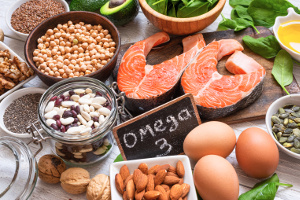
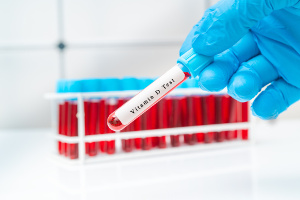 Vitamin D controls a host of different biochemical processes that are of importance to our health. Moderate vitamin D deficiency is rather common, and severe deficiency is one of the reasons why chronically ill cancer patients are put in intensive care and die within a year. Cancer patients who have been in intensive care can actually benefit from takin vitamin D supplements, according to an Austrian study that is published in Nutrients. The study supports earlier research that demonstrates different anti-cancer mechanisms in vitamin D.
Vitamin D controls a host of different biochemical processes that are of importance to our health. Moderate vitamin D deficiency is rather common, and severe deficiency is one of the reasons why chronically ill cancer patients are put in intensive care and die within a year. Cancer patients who have been in intensive care can actually benefit from takin vitamin D supplements, according to an Austrian study that is published in Nutrients. The study supports earlier research that demonstrates different anti-cancer mechanisms in vitamin D.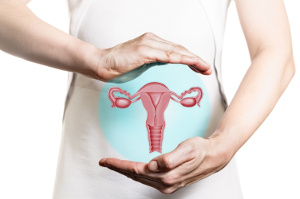 Ovarian cancer is one of the deadliest cancer forms because it metastasizes in a very special way. It appears, however, that vitamin D is able to counteract one of the mechanisms through which this cancer spreads, according to a new Japanese study that is published in Matrix Biology. It is a problem that vitamin D deficiencies are so common because the vitamin supports several anti-cancer mechanisms.
Ovarian cancer is one of the deadliest cancer forms because it metastasizes in a very special way. It appears, however, that vitamin D is able to counteract one of the mechanisms through which this cancer spreads, according to a new Japanese study that is published in Matrix Biology. It is a problem that vitamin D deficiencies are so common because the vitamin supports several anti-cancer mechanisms. Both diet and lifestyle affect your risk of developing liver cancer. According to a large population study published in Frontiers in Nutrition, regular intake of fish oil lowers your risk of contracting the disease. In fact, it seems that fish oil has a number of different cancer-preventing mechanisms that even reduce the risk of other types of cancer.
Both diet and lifestyle affect your risk of developing liver cancer. According to a large population study published in Frontiers in Nutrition, regular intake of fish oil lowers your risk of contracting the disease. In fact, it seems that fish oil has a number of different cancer-preventing mechanisms that even reduce the risk of other types of cancer.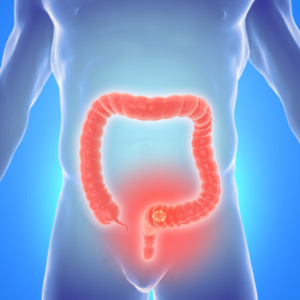 Colorectal cancer is one of the most common cancer types. Although the diet is of huge importance, the understanding of minerals and their interactions and preventative effect is limited. Earlier studies have shown that calcium and selenium have protective roles. It also looks as if having more selenium in the blood can improve the effect of calcium. This was demonstrated in a new Polish study that is published in BMC Nutrition. The scientists point out that there is widespread selenium deficiency in Europe and that supplementation may be needed.
Colorectal cancer is one of the most common cancer types. Although the diet is of huge importance, the understanding of minerals and their interactions and preventative effect is limited. Earlier studies have shown that calcium and selenium have protective roles. It also looks as if having more selenium in the blood can improve the effect of calcium. This was demonstrated in a new Polish study that is published in BMC Nutrition. The scientists point out that there is widespread selenium deficiency in Europe and that supplementation may be needed.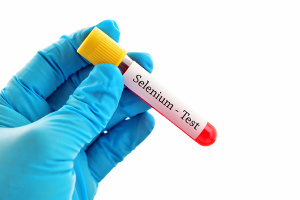
 Cancer has become one of the leading causes of death, with rates going up every year. The diet plays a major role and there is a lot of focus on selenium as an anti-cancer agent – both in the form of selenium-enriched functional foods and selenium supplements. Around one billion people worldwide are believed to lack selenium. According to a review article that is published in Foods, however, taking a daily supplement of 100-200 micrograms of selenium yeast can prevent deficiency and reduce some of the most common cancers by fifty percent.
Cancer has become one of the leading causes of death, with rates going up every year. The diet plays a major role and there is a lot of focus on selenium as an anti-cancer agent – both in the form of selenium-enriched functional foods and selenium supplements. Around one billion people worldwide are believed to lack selenium. According to a review article that is published in Foods, however, taking a daily supplement of 100-200 micrograms of selenium yeast can prevent deficiency and reduce some of the most common cancers by fifty percent. Glioblastoma is a the most common type of brain tumor and is very aggressive. Existing therapies are not all that effective and most people die within a few years after being diagnosed with the disease. It is essential to have more focus on prevention, and diet plays a major role. According to a Chinese population study, vitamins B1, B2, B2, and B9 (folic acid) are associated with a reduced risk of developing glioblastoma. The scientists mention the different B vitamins and their role in brain health and cancer prevention and stress the importance of knowing about the factors that inhibit the body’s uptake and utilization of these vitamins.
Glioblastoma is a the most common type of brain tumor and is very aggressive. Existing therapies are not all that effective and most people die within a few years after being diagnosed with the disease. It is essential to have more focus on prevention, and diet plays a major role. According to a Chinese population study, vitamins B1, B2, B2, and B9 (folic acid) are associated with a reduced risk of developing glioblastoma. The scientists mention the different B vitamins and their role in brain health and cancer prevention and stress the importance of knowing about the factors that inhibit the body’s uptake and utilization of these vitamins. Brain cancer is associated with physical and cognitive disruptions, and many patients die within a few years. Compared with other cancers, the development of brain cancer is more complex and there has been focus on underlying causes such as head traumas, allergies, and electromagnetic radiation from cell phones, transmission towers, etc. Scientists have also looked at vitamins and brain health, whereas minerals have been ignored. Now, a team of Chinese scientists have conducted a large population study and found that higher intake of calcium, magnesium, iron, zinc, and copper is linked to a reduced risk of different types of brain cancer (gliomas). Apparently, selenium also has a protective effect.
Brain cancer is associated with physical and cognitive disruptions, and many patients die within a few years. Compared with other cancers, the development of brain cancer is more complex and there has been focus on underlying causes such as head traumas, allergies, and electromagnetic radiation from cell phones, transmission towers, etc. Scientists have also looked at vitamins and brain health, whereas minerals have been ignored. Now, a team of Chinese scientists have conducted a large population study and found that higher intake of calcium, magnesium, iron, zinc, and copper is linked to a reduced risk of different types of brain cancer (gliomas). Apparently, selenium also has a protective effect.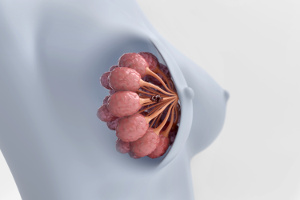 Breast cancer is most widespread in the western countries, and it is the leading cause of cancer-related deaths among women. Diet and lifestyle play a key role in the development of the disease. Earlier studies have shown that eating more oily fish or taking fish oil supplements that contain the omega-3 fatty acids, EPA and DHA, lowers the risk. A new study has shown that DHA supplements can be used as an adjuvant in cancer therapy. This particular omega-3 fatty acid inhibits the formation of some harmful molecules that stimulate the growth of breast cancer cells.
Breast cancer is most widespread in the western countries, and it is the leading cause of cancer-related deaths among women. Diet and lifestyle play a key role in the development of the disease. Earlier studies have shown that eating more oily fish or taking fish oil supplements that contain the omega-3 fatty acids, EPA and DHA, lowers the risk. A new study has shown that DHA supplements can be used as an adjuvant in cancer therapy. This particular omega-3 fatty acid inhibits the formation of some harmful molecules that stimulate the growth of breast cancer cells.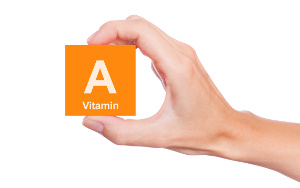
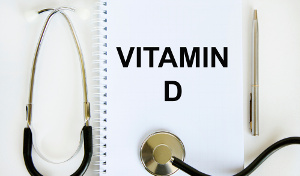 Millions of people worldwide drink arsenic-polluted water regularly. Arsenic is a toxin that is known to cause different types of cancer, including skin cancer. According to a new study published in American Journal of Cancer Research, it looks as if the active form of vitamin D, calcitriol, can prevent the onset of arsenic-induced skin cancer in a special type of skin cells. Calcitriol also appears to be able to prevent other types of cancer caused by arsenic.
Millions of people worldwide drink arsenic-polluted water regularly. Arsenic is a toxin that is known to cause different types of cancer, including skin cancer. According to a new study published in American Journal of Cancer Research, it looks as if the active form of vitamin D, calcitriol, can prevent the onset of arsenic-induced skin cancer in a special type of skin cells. Calcitriol also appears to be able to prevent other types of cancer caused by arsenic.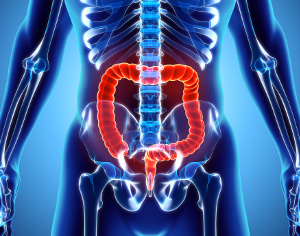 Colorectal cancer is one of the most common cancer forms in Denmark, which is why prevention is so important. According to a new American study that is published in Gastroenterology, increased intake of vitamin D appears to protect against bowel cancer, especially in people younger than 50 years. It even looks as if vitamin D may prevent intestinal polyps that can turn into cancer in some cases. The scientists say that higher intake of vitamin D may be relevant for prevention and may also serve as an inexpensive supplement to screening tests that are merely used for early diagnosis.
Colorectal cancer is one of the most common cancer forms in Denmark, which is why prevention is so important. According to a new American study that is published in Gastroenterology, increased intake of vitamin D appears to protect against bowel cancer, especially in people younger than 50 years. It even looks as if vitamin D may prevent intestinal polyps that can turn into cancer in some cases. The scientists say that higher intake of vitamin D may be relevant for prevention and may also serve as an inexpensive supplement to screening tests that are merely used for early diagnosis.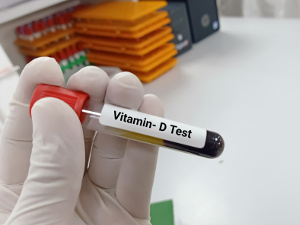 Cancer patients often have overwhelming pain that turns up as their disease progresses. The whole purpose with palliative care is to relieve the pain, and opioids such as morphine are often used for this purpose. However, according to a Swedish study published in the science journal Cancer, more and more terminal cancer patients who are given high-dosed supplements of vitamin D have less need for pain treatment and generally feel less tired. Vitamin D deficiencies are common among cancer patients and may contribute to a shorter life expectancy.
Cancer patients often have overwhelming pain that turns up as their disease progresses. The whole purpose with palliative care is to relieve the pain, and opioids such as morphine are often used for this purpose. However, according to a Swedish study published in the science journal Cancer, more and more terminal cancer patients who are given high-dosed supplements of vitamin D have less need for pain treatment and generally feel less tired. Vitamin D deficiencies are common among cancer patients and may contribute to a shorter life expectancy. Vitamin D plays a major role in our health. The main focus, however, is on vitamin D’s importance for bones, while many health professionals are totally unaware of the nutrient’s other essential functions. According to a review article published in Nutrients, half the global population has low vitamin D levels in the blood, which increases the risk of cardiovascular disease, hypertension, cancer, type 2 diabetes, Alzheimer’s disease, respiratory infections like COVID-19, and early death. The authors also mention that vitamin D science is often inadequate or misleading because studies focus on supplementation rather than looking at blood levels of 25(OH)D. Consequently, trials are often made with far too small vitamin D doses or with too a short a trial period. In either case, blood levels of vitamin D fail to reach their optimum. What is more, levels of 25(OH)D in the blood should ideally be above 75 nmol/L in order to protect against cardiovascular disease, cancer, and early death. Because this threshold level is higher than the official threshold levels, the scientists recommend high-dosed vitamin D levels as a way to reach an optimal nutrient status.
Vitamin D plays a major role in our health. The main focus, however, is on vitamin D’s importance for bones, while many health professionals are totally unaware of the nutrient’s other essential functions. According to a review article published in Nutrients, half the global population has low vitamin D levels in the blood, which increases the risk of cardiovascular disease, hypertension, cancer, type 2 diabetes, Alzheimer’s disease, respiratory infections like COVID-19, and early death. The authors also mention that vitamin D science is often inadequate or misleading because studies focus on supplementation rather than looking at blood levels of 25(OH)D. Consequently, trials are often made with far too small vitamin D doses or with too a short a trial period. In either case, blood levels of vitamin D fail to reach their optimum. What is more, levels of 25(OH)D in the blood should ideally be above 75 nmol/L in order to protect against cardiovascular disease, cancer, and early death. Because this threshold level is higher than the official threshold levels, the scientists recommend high-dosed vitamin D levels as a way to reach an optimal nutrient status. The summer sun is our primary source of vitamin D, and previous population studies have suggested that vitamin D may help prevent breast cancer from developing. Danish scientists have looked closer at this relation and found that women from 50 years of age and older who spend a lot of time outdoors – especially between 10 am and 3 pm – have a lower risk of breast cancer. This is important knowledge because it takes years for breast cancer to develop. Vitamin D appears to have a number of different anti-cancer mechanisms, which is why it is vital for us humans to get plenty of the nutrient throughout life.
The summer sun is our primary source of vitamin D, and previous population studies have suggested that vitamin D may help prevent breast cancer from developing. Danish scientists have looked closer at this relation and found that women from 50 years of age and older who spend a lot of time outdoors – especially between 10 am and 3 pm – have a lower risk of breast cancer. This is important knowledge because it takes years for breast cancer to develop. Vitamin D appears to have a number of different anti-cancer mechanisms, which is why it is vital for us humans to get plenty of the nutrient throughout life. "After about one week of taking the Q10 supplement I could feel a huge difference," says 23-year old Alan Piccini, who has been suffering from extreme fatigue and muscle aches ever since he was a child.
"After about one week of taking the Q10 supplement I could feel a huge difference," says 23-year old Alan Piccini, who has been suffering from extreme fatigue and muscle aches ever since he was a child. “Taking capsules with co-enzyme Q10 has freed me of the severe side effects of my cholesterol lowering medicine,” Mrs Franken explains.
“Taking capsules with co-enzyme Q10 has freed me of the severe side effects of my cholesterol lowering medicine,” Mrs Franken explains.